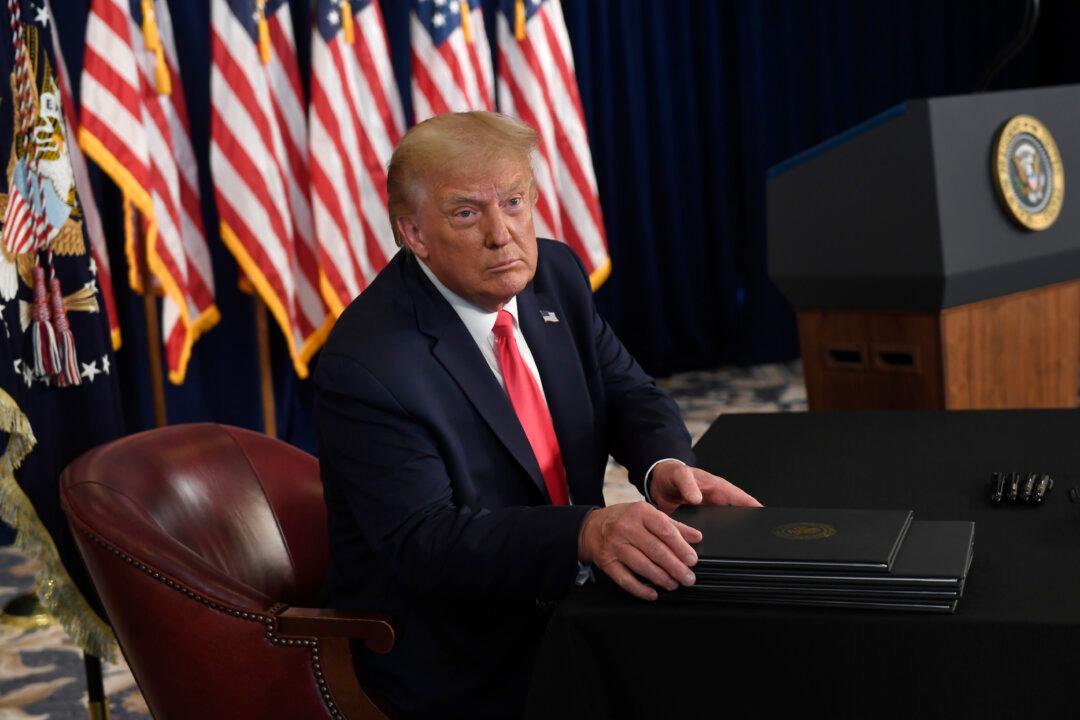Deferring the payroll tax or permanently cutting it won’t affect Social Security, President Donald Trump told reporters on Aug. 10.
“What we’re doing is we reimburse through the general fund, not through Social Security. This will have no impact on Social Security,” Trump said before departing Morristown Municipal Airport in New Jersey.





